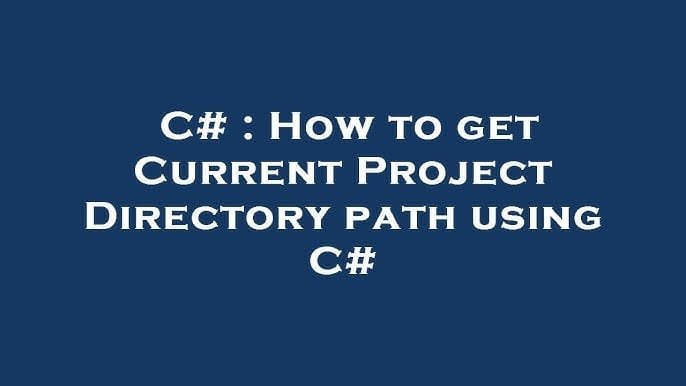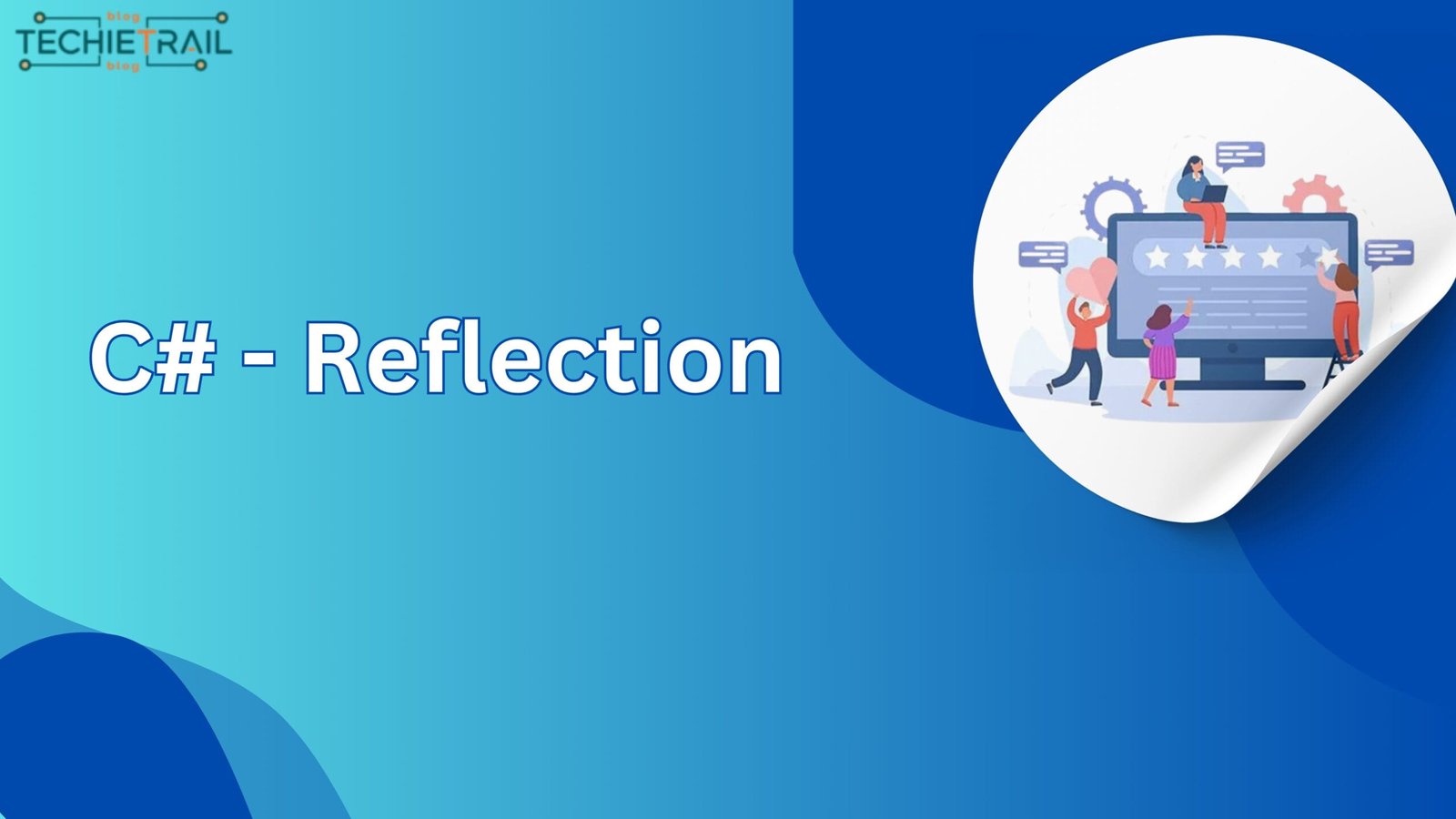Table of Contents
Beginner Level Questions
- What is C#?
- Answer: C# is a modern, object-oriented programming language developed by Microsoft as part of its .NET initiative. It is widely used for developing Windows applications, web applications, and games.
- What are the features of C#?
- Answer: Key features include object-oriented programming, type safety, interoperability, scalability, versioning support, and garbage collection.
- What is the difference between ref and out keywords in C#?
- Answer:
- ref: Requires the variable to be initialized before passing.
- out: Does not require initialization before passing; must be assigned a value in the method.
- Answer:
- What are value types and reference types in C#?
- Answer:
- Value types: Store data directly (e.g., int, float).
- Reference types: Store references to data (e.g., objects, strings).
- Answer:
- What is the difference between == and .Equals() in C#?
- Answer:
- == compares references for reference types and values for value types.
- .Equals() checks for value equality and can be overridden for custom logic.
- Answer:
- What is a nullable type in C#?
- Answer: A nullable type allows variables to hold null as a valid value. Syntax: int? num = null;.
- What is the purpose of the using statement?
- Answer: It ensures the proper disposal of objects that consume unmanaged resources, like file handles.
- What is a delegate in C#?
- Answer: A delegate is a type-safe pointer to a method.
- Explain the difference between an abstract class and an interface.
- Answer:
- Abstract class: Can have implementations and fields; supports inheritance.
- Interface: Purely declarative; all members must be implemented.
- Answer:
- What is LINQ in C#?
- Answer: LINQ (Language Integrated Query) is a feature for querying collections using a syntax similar to SQL.

Intermediate Level Questions
- What is the difference between IEnumerable and IQueryable?
- Answer:
- IEnumerable: Used for in-memory collection iteration.
- IQueryable: Supports querying data from out-of-memory sources (like databases).
- Answer:
- What are access modifiers in C#?
- Answer: Defines access levels:
- public, private, protected, internal, protected internal, private protected.
- Answer: Defines access levels:
- What is boxing and unboxing in C#?
- Answer:
- Boxing: Converting a value type to a reference type.
- Unboxing: Extracting the value type from an object.
- Answer:
- Explain async and await in C#.
- Answer: Used for asynchronous programming to prevent blocking operations and enhance responsiveness.
- What is Task in C#?
- Answer: Represents an asynchronous operation. It is part of the Task-based Asynchronous Pattern (TAP).
- What is yield keyword in C#?
- Answer: It is used to produce a value sequence one element at a time in an iterator method.
- What is the difference between readonly and const?
- Answer:
- readonly: Can be initialized at runtime or in the constructor.
- const: Must be initialized at compile-time.
- Answer:
- Explain polymorphism in C#.
- Answer: Polymorphism enables methods to have different implementations, achieved using method overriding or overloading.
- What is the purpose of partial classes in C#?
- Answer: Allows splitting a single class definition across multiple files.
- What is extension method in C#?
- Answer: A way to add new methods to existing types without modifying their source.
Advanced Level Questions
- What is dependency injection in C#?
- Answer: A design pattern used to inject dependencies into a class at runtime, enhancing testability and flexibility.
- Explain Garbage Collection in C#.
- Answer: Automatic memory management that reclaims unused objects to free up resources.
- What is the difference between abstract and virtual methods?
- Answer:
- Abstract: No implementation; must be overridden.
- Virtual: Can have an implementation but can be overridden.
- Answer:
- What is the difference between Dispose() and Finalize()?
- Answer:
- Dispose(): Explicitly releases resources.
- Finalize(): Called by the garbage collector before reclaiming objects.
- Answer:
- Explain delegates and events in C#.
- Answer:
- Delegates: Method references.
- Events: A specialized delegate used for broadcasting notifications.
- Answer:
- What is ThreadPool in C#?
- Answer: A pool of worker threads for managing parallel execution.
- What is a sealed class?
- Answer: Prevents inheritance.
- What are generics in C#?
- Answer: Enable type safety while allowing classes, interfaces, and methods to operate with any data type.
- Explain memory management in C#.
- Answer: Managed by the CLR through garbage collection, which cleans up unused objects.
- What is the difference between Struct and Class?
- Answer:
- Struct: Value type; stored on the stack.
- Class: Reference type; stored on the heap.
- Answer:
Scenario-Based Questions
- How to implement Singleton in C#?
- Answer: Use a private constructor and a static instance property.
- What are Attributes in C#?
- Answer: Metadata added to code elements for additional information, such as [Obsolete].
- What is dynamic type in C#?
- Answer: Allows variables to bypass compile-time type checking.
- How does async-await improve performance?
- Answer: By freeing up threads during I/O-bound operations.
- What is Deadlock, and how to avoid it?
- Answer: A situation where threads wait indefinitely for each other. Avoid by using proper locking mechanisms like Monitor.
- What is the purpose of Thread.Join()?
- Answer: Blocks a calling thread until the specified thread finishes execution.
- How does exception handling work in C#?
- Answer: Using try, catch, finally, and throw statements.
- What is the difference between Thread and Task?
- Answer:
- Thread: Lower-level concept for concurrency.
- Task: High-level abstraction for managing asynchronous code.
- Answer:
- What is a WeakReference in C#?
- Answer: Holds a reference to an object while still allowing it to be garbage-collected.
- How do you secure data in C# applications?
- Answer: Use encryption libraries such as System.Security.Cryptography.
Practical and Conceptual Questions
- Explain covariance and contravariance in C#.
- How does the lock keyword prevent race conditions?
- What is the async return type for methods?
- What is the difference between is and as operators?
- How do extension methods work internally?
- What is reflection in C#?
- What are async streams in C#?
- What is the difference between yield and return?
- How do you implement custom serialization?
- How do you handle cross-cutting concerns in .NET?


